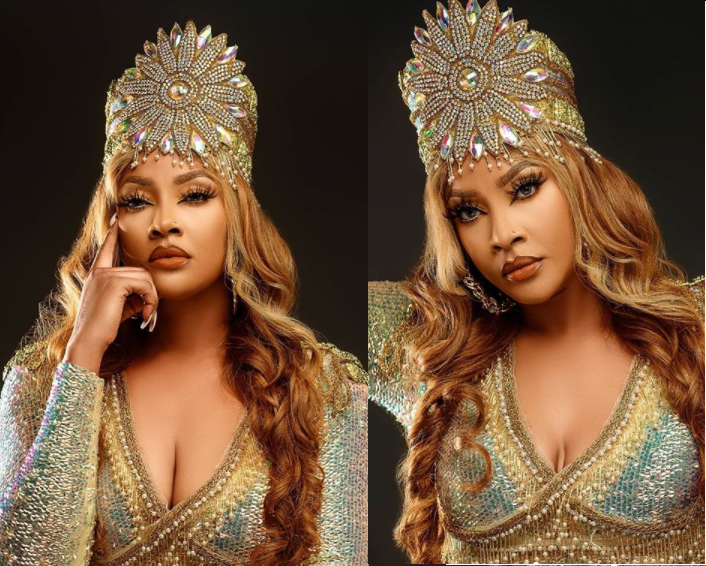Nollywood actress Angela Okorie has come out to respond after the Nigeria Police Force (NPF) announced disciplinary action against some of its armed officers who were caught on video jogging behind her during her workout. She recently had her say via her social media page, and fans have been reacting.
Also reacting, Angela announced that she was invited for questioning, and while honouring the invitation, she made it very clear that she would never disrespect the police.

She then vowed to keep promoting the image and the integrity of the Nigeria Police Force.
Her words, “Happy New Month, Nigeria!
Happy New month, NPF!
I, Angela Okorie, Legit Queen, want to take this opportunity to reassure the Nigeria Police Force (NPF) and the entire Nigerian public of my unwavering respect and high regard for the Nigerian Police.
I will never, under any circumstances, disrespect the Nigeria Police in any manner.
Let us not forget: on December 12, 2019, I was shot and attacked, and it was the Nigeria Police Force that rescued me and still conducting a professional investigation into the matter. Since then, the love and support from the NPF has been truly overwhelming and unforgettable.
Finally, Thank you Nigerian Police Force for the Invite Last week and I promise to keep promoting the image and the integrity of our dear NPF! Long live Nigeria!”
WOW.
Nollywood is a sobriquet that originally referred to the Nigerian film industry. The origin of the term dates back to the early 2000s, traced to an article in The New York Times. Due to the history of evolving meanings and contexts, there is no clear or agreed-upon definition for the term, which has made it a subject to several controversies.
The origin of the term “Nollywood” remains unclear; Jonathan Haynes traced the earliest usage of the word to a 2002 article by Matt Steinglass in the New York Times, where it was used to describe Nigerian cinema.
Charles Igwe noted that Norimitsu Onishi also used the name in a September 2002 article he wrote for the New York Times. The term continues to be used in the media to refer to the Nigerian film industry, with its definition later assumed to be a portmanteau of the words “Nigeria” and “Hollywood”, the American major film hub.
Film-making in Nigeria is divided largely along regional, and marginally ethnic and religious lines. Thus, there are distinct film industries – each seeking to portray the concern of the particular section and ethnicity it represents. However, there is the English-language film industry which is a melting pot for filmmaking and filmmakers from most of the regional industries.
Support InfoStride News' Credible Journalism: Only credible journalism can guarantee a fair, accountable and transparent society, including democracy and government. It involves a lot of efforts and money. We need your support. Click here to Donate
